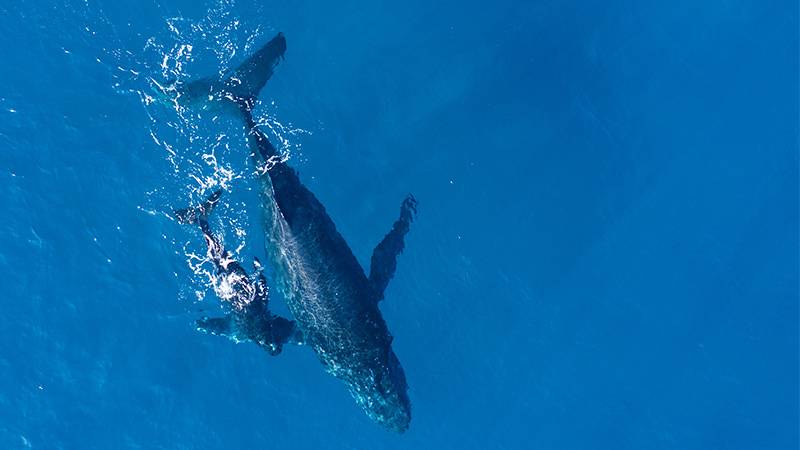In a remarkable turn of events, blue whales, the largest creatures on Earth, have returned to a region of the Indian Ocean, specifically near the Seychelles, where they were once nearly eradicated by intense whaling activities. This discovery, which highlights the resilience of nature when given a chance to recover, has been documented in recent research and an Imax film, “Blue Whales 3D.”
Researchers from the University of Seychelles, along with filmmakers, have captured stunning drone footage of these majestic creatures in 2020 and 2021. The findings, described as a “conservation win,” are particularly significant given the dark history of whaling in the area. In the 1960s, a Soviet whaling fleet dramatically reduced the population of these ocean giants. This resurgence is seen as a beacon of hope, affirming Dr. Kate Stafford’s assertion that given the chance, animal populations can rebound from even severe declines.
Blue whales, now listed as endangered by the International Union for the Conservation of Nature, faced a grim past. Over 300,000 were killed in the southern hemisphere, with the 1930s witnessing the loss of about 30,000 whales annually. Despite these harrowing numbers, the species is showing signs of recovery, with the Seychelles area playing a crucial role.
The discovery stemmed from an innovative approach involving a “sound trap” fixed to the seabed. This device, equipped with underwater microphones, batteries, and recording devices, captured the unique low-frequency songs of the blue whales, particularly during March and April. Despite not hearing these songs during their expedition, researchers later confirmed the presence of blue whales through detailed analysis of the recordings.
“This means the Seychelles could be really important for blue whales,” said Dr Stafford, explaining: “They sing during the breeding season and we think it’s probably the males who are singing, based on what we know about other whales.”So there’s also potential that the Seychelles is a breeding area or a nursery area.”
The findings suggest that the Seychelles could be a vital area for the whales, potentially serving as a breeding or nursery area. The unique acoustic signatures of the whales in this region align with the northern Indian Ocean population, offering insights into their migratory patterns and habitats.
Blue whale songs, characterized by their deep, low frequency, are a marvel in the animal kingdom, with their calls reaching up to 188 decibels. These sounds travel far in water, enabling communication over vast distances. The Seychelles, with its relatively low levels of ship traffic, may offer a serene and safe haven for these creatures.
According to the BBC, conservation efforts in the Seychelles have been bolstered by a unique “debt for nature” swap, which saw a significant portion of the country’s national debt written off in exchange for increased ocean protection. Approximately 400,000 square kilometers of seas around the islands are now safeguarded, offering a refuge for diverse marine life.
As scientists continue to unravel the mysteries of the blue whales’ return and the region’s ecological significance, there’s a growing understanding of the need to protect these areas from threats like noise pollution. This discovery not only underscores the resilience of blue whales but also highlights the crucial role of conservation in safeguarding the planet’s most magnificent creatures.
More inspiring green news similar to this:


